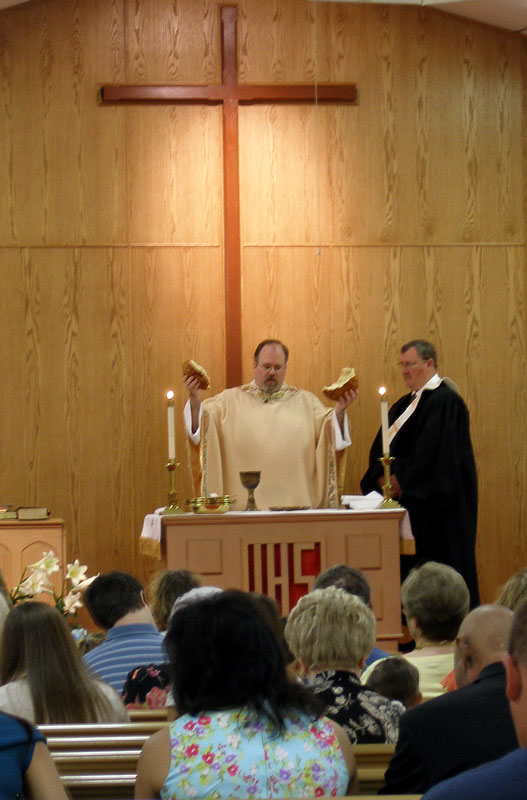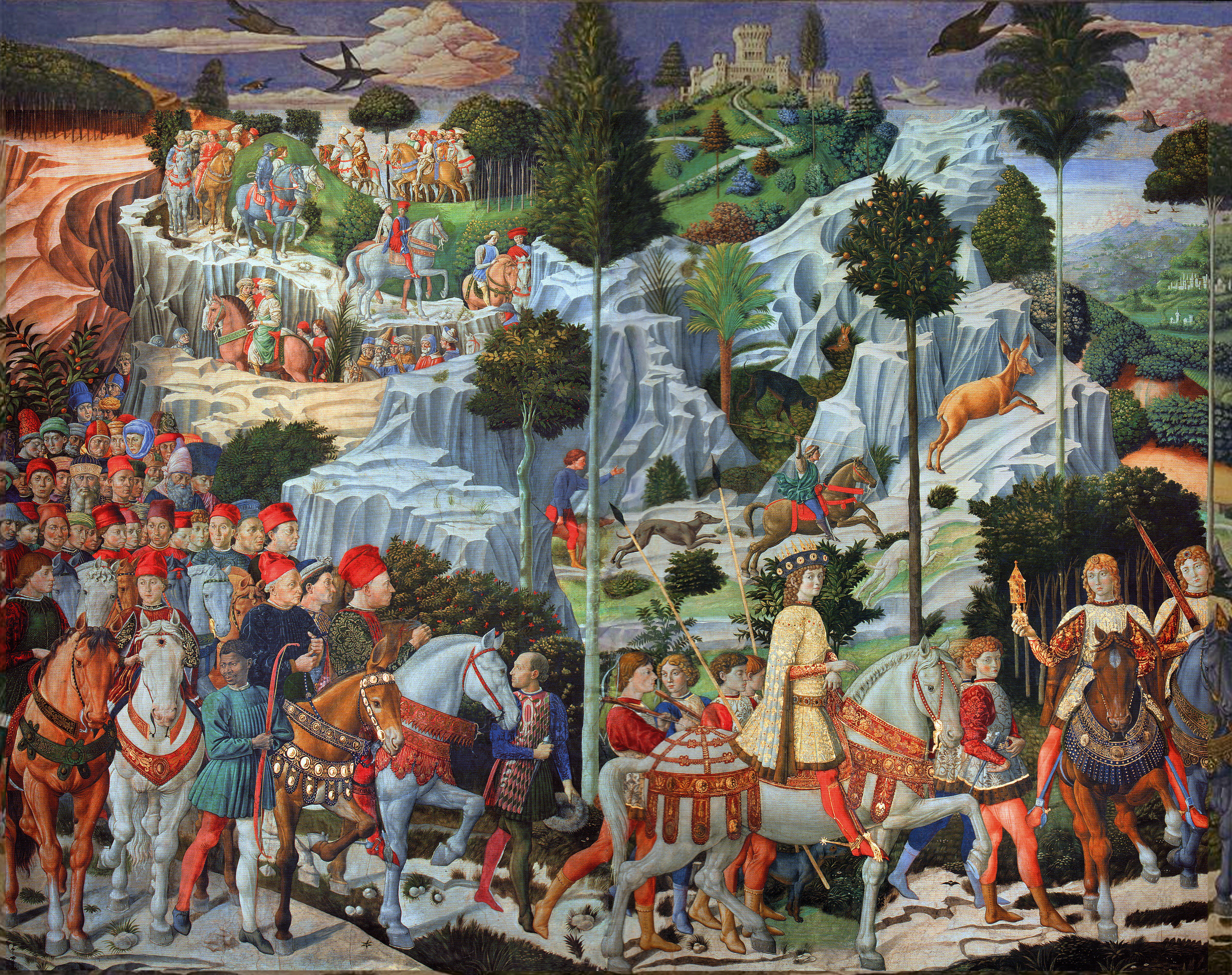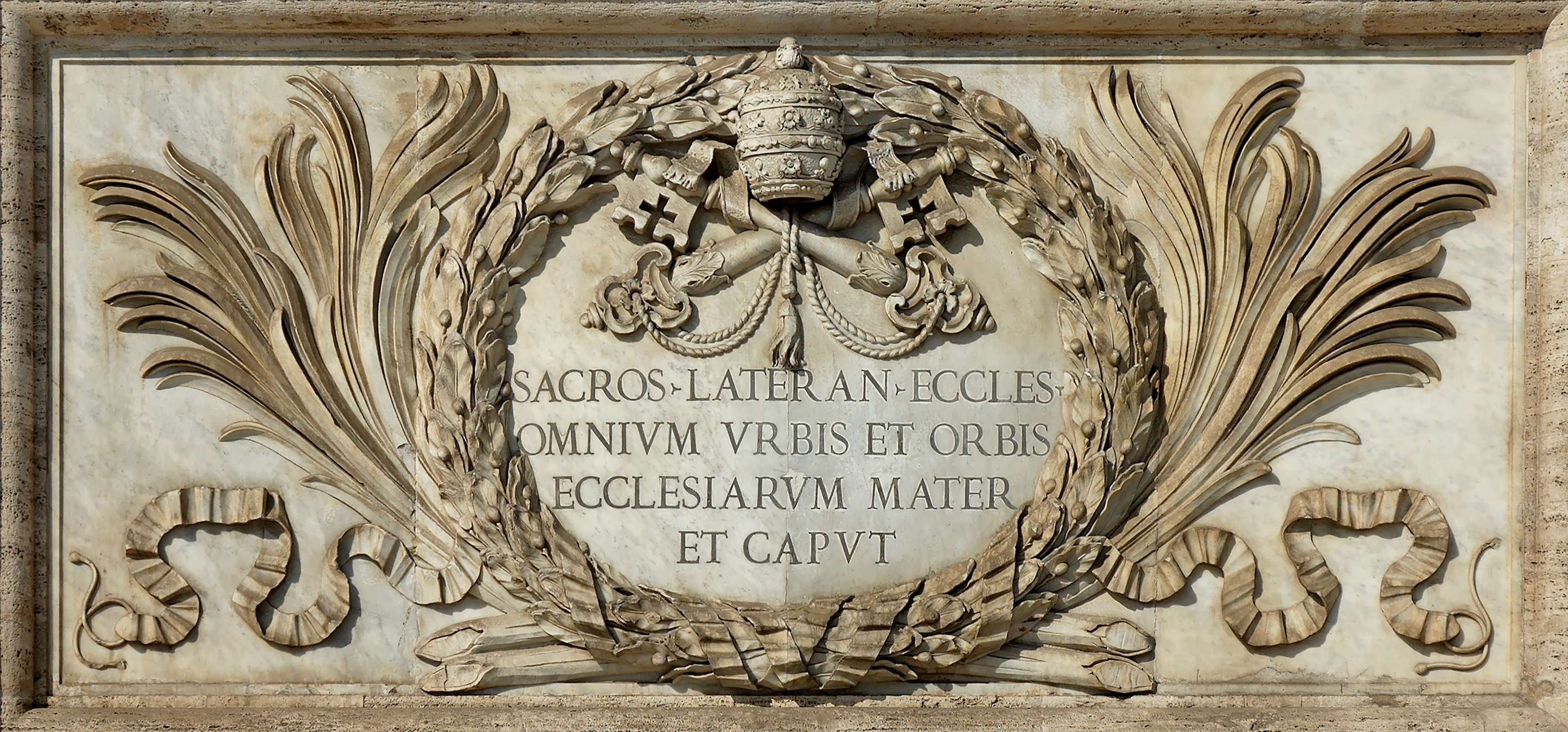|
One True Church
The expression "one true church" refers to an ecclesiological position asserting that Jesus gave his authority in the Great Commission solely to a particular visible Christian institutional church—what is commonly called a denomination. This view is maintained by the Catholic Church, the Eastern Orthodox Church, the Oriental Orthodox communion, the Assyrian Church of the East, the Ancient Church of the East, and the Lutheran churches, as well as certain Baptists. Each of them maintains that their own specific institutional church (denomination) exclusively represents the one and only original church. The claim to the title of the "one true church" relates to the first of the Four Marks of the Church mentioned in the Nicene Creed: "one, holy, catholic, and apostolic church". As such, it also relates to claims of both catholicity and apostolic succession: asserting inheritance of the spiritual, ecclesiastical and sacramental authority and responsibility that Jesus Christ ga ... [...More Info...] [...Related Items...] OR: [Wikipedia] [Google] [Baidu] |
Ecclesiology
In Christian theology, ecclesiology is the study of the Church, the origins of Christianity, its relationship to Jesus, its role in salvation, its polity, its discipline, its eschatology, and its leadership. In its early history, one of the Church's primary ecclesiological issues had to do with the status of Gentile members in what had become the New Testament fulfilment of the essentially Jewish Old Testament church. It later contended with such questions as whether it was to be governed by a council of presbyters or a single bishop, how much authority the bishop of Rome had over other major bishops, the role of the Church in the world, whether salvation was possible outside of the institution of the Church, the relationship between the Church and the State, and questions of theology and liturgy and other issues. Ecclesiology may be used in the specific sense of a particular church or denomination's character, self-described or otherwise. This is the sense of the word ... [...More Info...] [...Related Items...] OR: [Wikipedia] [Google] [Baidu] |
Apostles In The New Testament
In Christian theology and ecclesiology, the apostles, particularly the Twelve Apostles (also known as the Twelve Disciples or simply the Twelve), were the primary Disciple (Christianity), disciples of Jesus according to the New Testament. During the Life of Jesus in the New Testament, life and ministry of Jesus in the Christianity in the 1st century, 1st century AD, the apostles were his closest followers and became the primary teachers of the gospel message of Jesus. There is also an Eastern Christianity, Eastern Christian tradition derived from the Gospel of Luke that there were Seventy disciples, seventy apostles during the time of Jesus' ministry. The commissioning of the Twelve Apostles during the ministry of Jesus is described in the Synoptic Gospels. After his Resurrection of Jesus, resurrection, Jesus sent eleven of them (as Judas Iscariot by then had Judas Iscariot#Death, died) by the Great Commission to spread his teachings to all nations. In the Pauline epistles, ... [...More Info...] [...Related Items...] OR: [Wikipedia] [Google] [Baidu] |
Anglican
Anglicanism, also known as Episcopalianism in some countries, is a Western Christianity, Western Christian tradition which developed from the practices, liturgy, and identity of the Church of England following the English Reformation, in the context of the Protestant Reformation in Europe. It is one of the largest branches of Christianity, with around 110 million adherents worldwide . Most are members of national or regional Ecclesiastical province#Anglican Communion, ecclesiastical provinces of the international Anglican Communion, one of the largest Christian bodies in the world, and the world's third-largest Christian communion. When united and uniting churches, united churches in the Anglican Communion and the breakaway Continuing Anglican movement were not counted, there were an estimated 97.4 million Anglicans worldwide in 2020. Adherents of Anglicanism are called ''Anglicans''; they are also called ''Episcopalians'' in some countries. The provinces within the Anglican ... [...More Info...] [...Related Items...] OR: [Wikipedia] [Google] [Baidu] |
Invisible Church
The church invisible, invisible church, mystical church or church mystical, is a Christian theological concept of an "invisible" Christian Church of the elect who are known only to God, in contrast to the " visible church"—that is, the institutional body on earth which preaches the gospel and administers the sacraments. Every member of the invisible church is "saved", while the visible church contains all individuals who are saved though also having some who are "unsaved". According to this view, Bible passages such as , , and speak about this distinction. Views on the relation with the church visible Distinction between two churches The first known and recorded person in church history to introduce a view of an invisible and a visible church is Clement of Alexandria. Some have also argued that Jovinian and Vigilantius held an invisible church view. The concept was advocated by St Augustine of Hippo as part of his refutation of the Donatist sect, though he, as other Ch ... [...More Info...] [...Related Items...] OR: [Wikipedia] [Google] [Baidu] |
Christian Church
In ecclesiology, the Christian Church is what different Christian denominations conceive of as being the true body of Christians or the original institution established by Jesus Christ. "Christian Church" has also been used in academia as a synonym for Christianity, despite the fact that it is composed of multiple churches or denominations, many of which hold a doctrinal claim of being the one true church to the exclusion of the others. For many Protestantism, Protestant Christians, the Christian Church has two components: the church visible, institutions in which "the Bible, Word of God purely preached and listened to, and the sacraments administered according to Christ's institution", as well as the church invisible—all "who are truly Salvation in Christianity, saved" (with these beings members of the visible church). In this understanding of the invisible church, "Christian Church" (or Catholic (term), catholic Church) does not refer to a particular Christian denomination, ... [...More Info...] [...Related Items...] OR: [Wikipedia] [Google] [Baidu] |
Baptized
Baptism (from ) is a Christian sacrament of initiation almost invariably with the use of water. It may be performed by sprinkling or pouring water on the head, or by immersing in water either partially or completely, traditionally three times, once for each person of the Trinity. The synoptic gospels recount that John the Baptist baptized Jesus., , Baptism is considered a sacrament in most churches, and as an ordinance in others. Baptism according to the Trinitarian formula, which is done in most mainstream Christian denominations, is seen as being a basis for Christian ecumenism, the concept of unity amongst Christians. Baptism is also called christening, although some reserve the word "christening" for the baptism of infants. In certain Christian denominations, such as the Catholic Churches, Eastern Orthodox Churches, Oriental Orthodox Churches, Assyrian Church of the East, and Lutheran Churches, baptism is the door to church membership, with candidates taking ... [...More Info...] [...Related Items...] OR: [Wikipedia] [Google] [Baidu] |
Mainline Protestant
The mainline Protestants (sometimes also known as oldline Protestants) are a group of Protestantism in the United States, Protestant denominations in the United States and Protestantism in Canada, Canada largely of the Liberal Christianity, theologically liberal or Progressive Christianity, theologically progressive persuasion that contrast in history and practice with the largely theologically conservative Evangelicalism, evangelical, Christian fundamentalism, fundamentalist, Charismatic Christianity, charismatic, Confessionalism (religion), confessional, Confessing Movement, historically Black church, and Global South Fellowship of Anglican Churches, Global South Protestant denominations and congregations. Some make a distinction between "mainline" and "oldline", with the former referring only to denominational ties and the latter referring to church lineage, prestige and influence. However, this distinction has largely been lost to history and the terms are now nearly synonymous. ... [...More Info...] [...Related Items...] OR: [Wikipedia] [Google] [Baidu] |
Council Of Florence
The Council of Florence is the seventeenth ecumenical council recognized by the Catholic Church, held between 1431 and 1445. It was convened in territories under the Holy Roman Empire. Italy became a venue of a Catholic ecumenical council after a gap of about 2 centuries (the last ecumenical council to be held in Italy was the 4th Council of the Lateran in Rome's Lateran Palace). It was convoked in Basel as the Council of Basel by Pope Martin V shortly before his death in February 1431 and took place in the context of the Hussite Wars in Bohemia and the rise of the Ottoman Empire. At stake was the greater conflict between the conciliar movement and the principle of papal supremacy. The Council entered a second phase after Emperor Sigismund's death in 1437. Pope Eugene IV translated the Council to Ferrara on 8 January 1438, where it became the Council of Ferrara and succeeded in drawing some of the Byzantine ambassadors who were in attendance at Basel to Italy. Some Co ... [...More Info...] [...Related Items...] OR: [Wikipedia] [Google] [Baidu] |
Papal Supremacy
Papal supremacy is the doctrine of the Catholic Church that the Pope, by reason of his office as Vicar of Christ, the visible source and foundation of the unity both of the bishops and of the whole company of the faithful, and as priest of the entire Catholic Church, has full, supreme, and universal power over the whole church, a power which he can always exercise unhindered: that, in brief, "the Pope enjoys, by divine institution, supreme, full, immediate, and universal power in the care of souls." The doctrine had the most significance in the relationship between the church and the temporal state, in matters such as ecclesiastic privileges, the actions of monarchs and even successions. Institution of papal supremacy The Catholic doctrine of papal supremacy is based on the idea that it was instituted by Christ and that papal succession is traced back to Peter the Apostle in the 1st century. The authority for the position is derived from the Confession of Peter document ... [...More Info...] [...Related Items...] OR: [Wikipedia] [Google] [Baidu] |
Immaculate Conception
The Immaculate Conception is the doctrine that the Virgin Mary was free of original sin from the moment of her conception. It is one of the four Mariology, Marian dogmas of the Catholic Church. Debated by medieval theologians, it was not defined as a Dogma in the Catholic Church, dogma until 1854, by Pope Pius IX in the papal bull ''Ineffabilis Deus''. While the Immaculate Conception asserts Mary's freedom from original sin, the Council of Trent, held between 1545 and 1563, had previously affirmed her freedom from Catholic hamartiology, personal sin. The Immaculate Conception became a popular subject in literature, but its abstract nature meant it was late in appearing as a subject in works of art. The iconography of Our Lady of the Immaculate Conception shows Mary standing, with arms outstretched or hands clasped in prayer. The feast day of the Immaculate Conception is December 8. Many Protestant churches rejected the doctrine of the Immaculate Conception as unscriptural, t ... [...More Info...] [...Related Items...] OR: [Wikipedia] [Google] [Baidu] |
Substitutionary Atonement
Substitutionary atonement, also called vicarious atonement, is a central concept within Western Christian theology which asserts that Jesus died for humanity, as claimed by the Western classic and paradigms of atonement in Christianity, which regard Jesus as dying as a substitute for others. Substitutionary atonement has been explicated in the "classic paradigm" of the Early Church Fathers, namely the ransom theory, as well as in Gustaf Aulen's demystified reformulation, the Christus Victor theory; and in the "objective paradigm," which includes Anselm of Canterbury's satisfaction theory, the Reformed period's penal substitution theory, and the Governmental theory of atonement. Definition Substitutionary atonement, also called vicarious atonement, is the idea that Jesus died "for us". There is also a less technical use of the term "substitution" in discussion about atonement when it is used in "the sense that esus, through his death,did for us that which we can never ... [...More Info...] [...Related Items...] OR: [Wikipedia] [Google] [Baidu] |
Purgatory
In Christianity, Purgatory (, borrowed into English language, English via Anglo-Norman language, Anglo-Norman and Old French) is a passing Intermediate state (Christianity), intermediate state after physical death for purifying or purging a soul. A common analogy is dross being removed from gold in a furnace. In Magisterium, Catholic doctrine, purgatory refers to the final cleansing of those who died in the State of Grace, and leaves in them only "the holiness necessary to enter the joy of heaven"; it is entirely different from the punishment of Damnation, the damned and is not related to the forgiveness of sins for salvation. A forgiven person can be freed from his "unhealthy attachment to creatures" by Indulgence#Catholic teaching, fervent charity in this world, and otherwise by the non-vindictive "temporal (i.e. non-eternal) punishment" of purgatory. In late medieval times, metaphors of time, place and fire were frequently adopted. Catherine of Genoa (fl. 1500) re-framed the ... [...More Info...] [...Related Items...] OR: [Wikipedia] [Google] [Baidu] |










